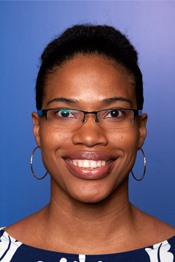Building and Mentoring Diverse Teams to Achieve Equity, Diversity, Inclusion and Greater Success
Presentations
10:35 AM Strategies for Equity, Diversity, and Inclusion in the Medical Physics Residency Recruitment Process - T Juang, Presenting Author
10:50 AM Strategies for Mentoring and Retaining Underrepresented Minorities in Medical Physics Practice Environments - A Johnson, Presenting Author
11:05 AM Representation Matters: Our Responsibility in Cultivating Inclusion and Belonging in Radiation Oncology - M Siker, Presenting Author
11:20 AM Panel Discussion and Audience Q&A - G Aldosary, Presenting Author
WE-A-TRACK 1-0 (Wednesday, 7/28/2021) 10:30 AM - 11:30 AM [Eastern Time (GMT-4)]
There has been a focus on generating awareness and cultivating equity, diversity, and inclusion (EDI) in the medical physics community, with significant efforts made by the AAPM and COMP at the last joint scientific meeting. However, there is still a need to exchange readily adoptable methods to improve EDI in recruitment, education, residency training, and professional practice. In this session, we will review how mentorship and intentional professional development can improve EDI in medical physics.
First, we will discuss how mentorship plays an important role in retaining underrepresented minorities (URM) in medical physics. We will provide strategies to develop holistic developmental relationships with URM mentees. Attendees will also be able to recognize unintentionally harmful and exclusionary practices that may discourage an URM’s training, professional engagement, and career advancement.
Second, medical physicists involved in education, training, and management will learn about the concept of adverse impact and how adverse impact assessments can be used while reviewing screening criteria and procedures for residency applications. We will introduce structured interviews and their value in improving reliability, validity, and fairness, and examine how structure can be added to the recruitment interview process by implementing content-related components (e.g., standardized questions, behavioral or situational interviewing) and evaluation-related components (e.g., rating scales, interviewer training).
Then, we will highlight EDI initiatives adopted by our colleagues in radiation oncology, discuss the importance of diversity in the radiation oncology workforce, and identify effective strategies to improve EDI. This discussion will return to why diversity matters in both medical physics and in the general scope of healthcare.
Finally, the audience will engage with the speakers in a panel discussion and have the opportunity to exchange their own experiences with successful EDI strategies.
At the end of this session, participants will:
1. Learn about methods for fostering EDI in education, training, and professional practice.
2. Become familiar with mentorship strategies to advance developmental relationships with underrepresented minorities in medical physics.
3. Understand how adverse impact assessments and structured interviews can be applied as valuable tools for improving reliability, validity, and fairness in the recruitment process.
4. Gain insight on why diversity matters in healthcare, and learn about strategies used to improve diversity in the current radiation oncology workforce.
Handouts
- 166-57824-15651646-171277-1518436398.pdf (Amirh Johnson)
- 166-57825-15651646-171285-1155904560.pdf (Titania Juang)
Keywords
Not Applicable / None Entered.
Taxonomy
Leadership: Inspirational Leadership - Inspiring and guiding individuals and groups.
Contact Email









